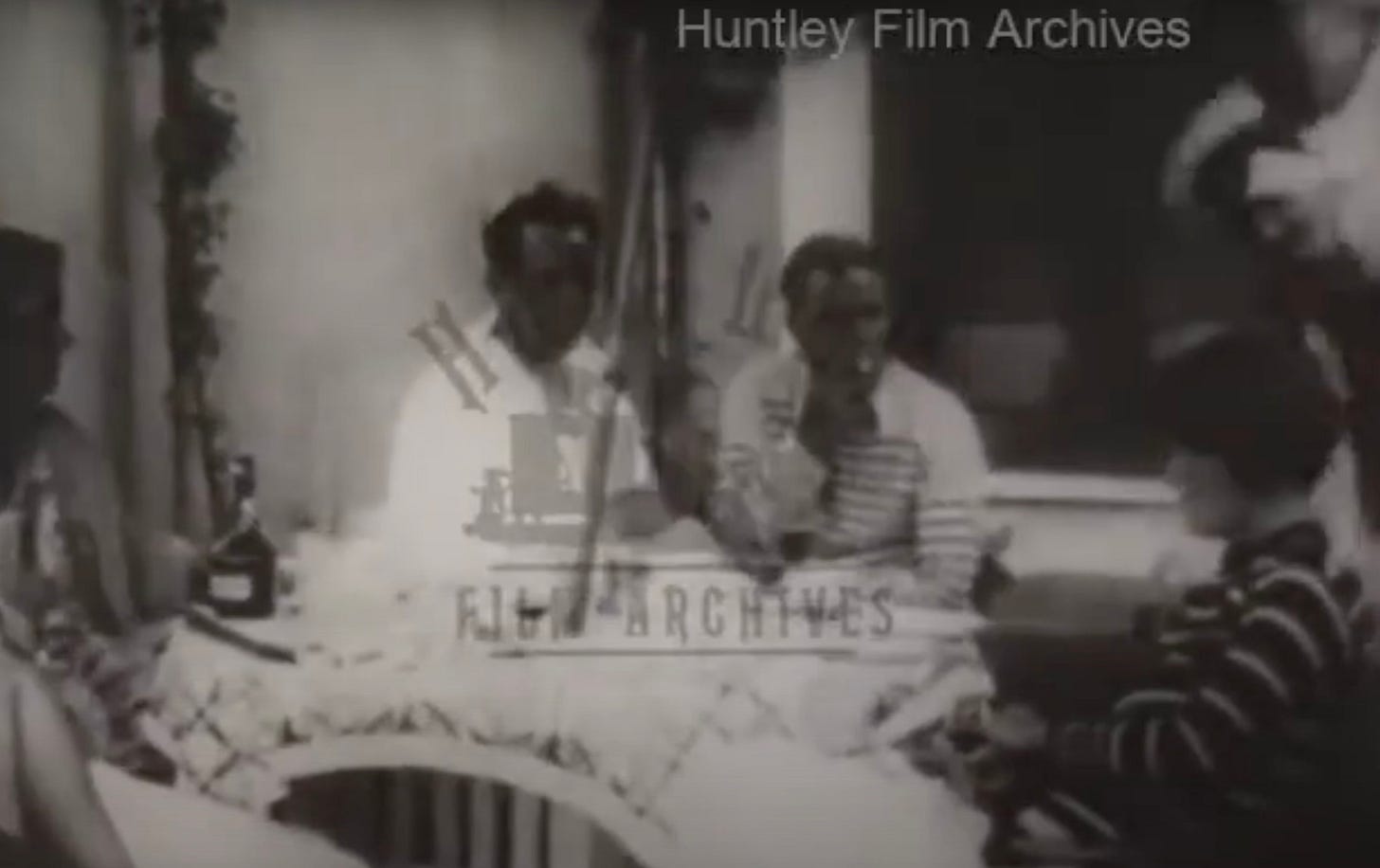
I think a lot about the Lee Israel story. If you don’t know, Lee Israel was this New York writer who forged a bunch of letters (there’s a biopic based on her brief memoir) and was convicted for it. But firstly, Lee Israel was a biographer who didn’t take the right bribe from Roy Cohn and fell onto hard times. So she started forging letters by famous writer-people to keep herself alive in New York.
But Lee Israel wanted to be a writer, of course she did. She wanted to be Dorothy Parker or Fanny Brice or Noel Coward or one of those funny writer-people whose letters she faked. In her memoir, she says she “adored the writing life.” And that’s why she was so good at forging letters, and that’s why she was such a good biographer — because she could put herself in those shoes. One of the booksellers who sold her fake letters admitted that she was “an excellent writer”1 and even the FBI agent who arrested her said she was “brilliant.”
Now there’s nothing immoral in being a biographer (or even, for that matter, a literary forger, it’s not as respectable as forging wine or art, but it’s still something). But author biographies … author biographies suck. At least, I’ve never read a good one. It’s always good writers profiling some great novelist they never were. And they’re shooting at the impossible here. You can’t write a Faulkner biography like William Faulkner, no matter how bad you want to be him. At best, you can mimic him. But more often than not, you sound hackish.
There are arguments, of course. I get the evolution of criticism, how things are examined through different lenses (second-wave feminism, marxism, structuralism) but critics and biographers are separate species even if they are the same genus2. An author biography is still just a biography, with the promise to illustrate the subject in their entirety. In most cases, that’s great. But everything an author ever said worthing saying is already in their books. Or, at worst, it’s in their letters and diaries.
And I’m thinking about author biographies again because Substack recently mass-sent this piece by that kid who did the Vanity Fair story romanticizing Cormac McCarthy’s cowboy pedophilia. And well, shit, good for that kid. He’s obsessed with Cormac McCarthy and he looks like a young Keith Richards and he’s probably in his twenties. He’s on a high. Let the boy cook, I say.
If you missed it, this kid got in touch with some lady who slept with Cormac McCarthy when she was 16 and he was 42. It wasn’t entirely a secret. It turns out that a couple legit McCarthy biographers were chasing her too. Instead, she talked to this kid and that throws a twist in the story, doesn’t it? She seems like a genuine person, but she’s also a sharp cookie. She knew the biographers were chasing her, that they would write about her eventually and so she found this bullhorn of a kid and she used him to frame the story.
Because fuck the literary biographers, right? Do you know who the most famous biographer in the world is? Walter Isaacson and his biggest books lionized Kissinger and Elon Musk. Authors don’t even like biographers. That’s why they tell people to burn their letters. That’s why they’re frequently hostile to the practice being practiced in their presence. Old Hem would get even get a little litigious whenever anybody flirted with writing his biography (turns out the boy had skeletons).
But the point is that author biographies are tainted. They promise to let you know the author and yet you always come away feeling slighted (as though the whole book was a Lee Israel letter you bought as an authentic artifact). The biographers can get close, but they can’t give you the real thing. Only the author’s books can do that. And maybe a lot of this is our fault, the fault of the reader, because who reads author biographies obsessively? Hopeful writers. We read these biographies looking for pixie dust. Like there’s some magic hour and magic place to write your novel.
And now, the caveat. The part where I throw my whole thesis out the window (or at least whittle it down into near-nothingness). Because there are exceptions to the all-author-biographies-suck rule. Somebody who knew the author, a book like Papa Hemingway or Salinger’s daughter’s biography/memoir Dream Catcher or Sheila Graham’s The Real F Scott Fitzgerald are all worth reading because the writers are laying their cards down from the get-go. Nobody is pretending to be neutral there.
And a book about a part of an author’s life. A specific stage. Like Voltaire in Love or Everybody Behaves Badly or The Zhivago Affair. All worth reading. Also, weirdly enough, George Plimpton’s oral biography of Truman Capote, is also very much worth reading. Because it’s not spun into the web of a biography. It’s just people who knew Capote shit-talking him (even when they were complimenting him).
And I wish I had better news, I wish I could say there was one author biography that felt fulfilling in the way that the Jim Morrison biography or the Teddy Roosevelt biography did. Because what you want when you open that biography is to get to know the author, to get every single ounce of their being. But you can only ever get that from their books.
also apparently, when Lee Israel’s memoir came out, everybody was climbing onto soapboxes to complain about “is this really a responsible publishing endeavor” as if all memoirs aren’t mostly embellishments.
Critics, people like Brandon Taylor or Elizabeth Hardwick or Sontag or Bloom or whomever are wonderful for expanding your vision of a text, but they’re not really biographers. Even Thomas Mann’s wonderful novella-essays of Schopenhauer and Goethe are only criticisms.



